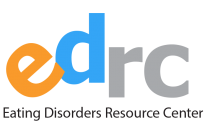One of our strongest supporters and group leaders, Bruce Brugler, took the opportunity at his 30-year class reunion at Stanford Graduate School of Business to raise awareness about eating disorders and the disastrous impact they have on families, including his own.
One of the difficult aspects of eating disorders is that they are often suffered in silence by those affected, both patients and their loved ones. There is an odd sense of reluctance to talk about them to others, something that doesn’t occur with other diseases or illnesses that may affect a family. Having experienced this when our two daughters were battling EDs, my wife and I have done our best to lift the veil of secrecy that surrounds EDs and create forums for those affected to talk about their struggles.
Several months ago, I received an invitation to my 30th graduate school reunion, an event that included a “TED talk” session where a group of classmates would share some thoughts and experiences in 10- to 15-minute sessions. Volunteers for this event were being solicited, and I offered to share our family’s experience with eating disorders. Somewhat to my surprise, my offer was accepted… leaving me with the stark realization that I had committed to sharing some extremely difficult times with a couple hundred classmates who were gathering for a time mostly dedicated to seeing old friends and sharing old stories.
I spent the next month preparing for my presentation, a process that was extremely difficult as it forced me to dig into memories I’d buried deeply over the years since our daughters were at the worst of their condition. There’s simply no way to talk about EDs without delving into the pain and darkness that surrounds them. Emotions would overwhelm me as I worked to compose my talk, and even more so when I would rehearse its presentation. Getting thru it even without an audience was difficult.
My presentation was intended to cover a variety of aspects in a relatively short period. It began with a brief summary of each of my daughters battles with anorexia and then moved to an
overview of eating disorders and their shocking prevalence in our community. I then talked about the terrible pressures that social media and “influencers” have on our children. Finally, I
shared the lessons that I learned from our family’s experience with eating disorders and gave a number of suggestions about what my classmates could do if they found themselves in a similar situation. It ended on a happy note, telling how both of my daughters had recovered from their diseases and gone on to life happy and healthy lives.
Delivering the presentation was difficult, emotional, and ultimately uplifting. I struggled at times to get thru my remarks, pausing a number of times to collect myself before I could continue. Only when I finished did I really look into the audience… and was surprised to see the emotion that my presentation had elicited. When I left the podium to hug my wife, it was to a standing ovation.
While the immediate reaction from my classmates was gratifying, even more rewarding were the discussions we had over the rest of the weekend’s event. At least fifteen classmates approached my wife and me to tell of their own experiences with eating disorders, some in the past and some still ongoing. Others told us how the tone of many conversations shifted after my talk as it became OK to talk about difficult subjects rather than more typical reunion banter. In the weeks after the reunion I received a number of emails from classmates about my talk and its effect, including from a classmate who was inspired by it to support a friend whose daughter was showing signs of ED.
Nobody asks to be affected by an eating disorder, and nobody suffering through one should feel shame about what they’re experiencing. Recovery requires a broad support group of professionals, friends, and family, and getting this support means breaking thru the secrecy and shame that’s all too often associated. My wife and I are so pleased that the knowledge and experience we gained from our family’s battle with anorexia has been able to help others in their own battles.
In the new year, make sure you are connecting with those you love. Make your year end gift before December 31, 2023 and The Bruglers will match your donation dollar-for-dollar.
If you or someone you know is struggling with an eating disorder, you can learn more about various care options here. EDRC provides support groups and maintains a comprehensive directory of specialized treatment providers in the Bay Area. You can also support EDRC’s mission further by making a tax deductible donation.






